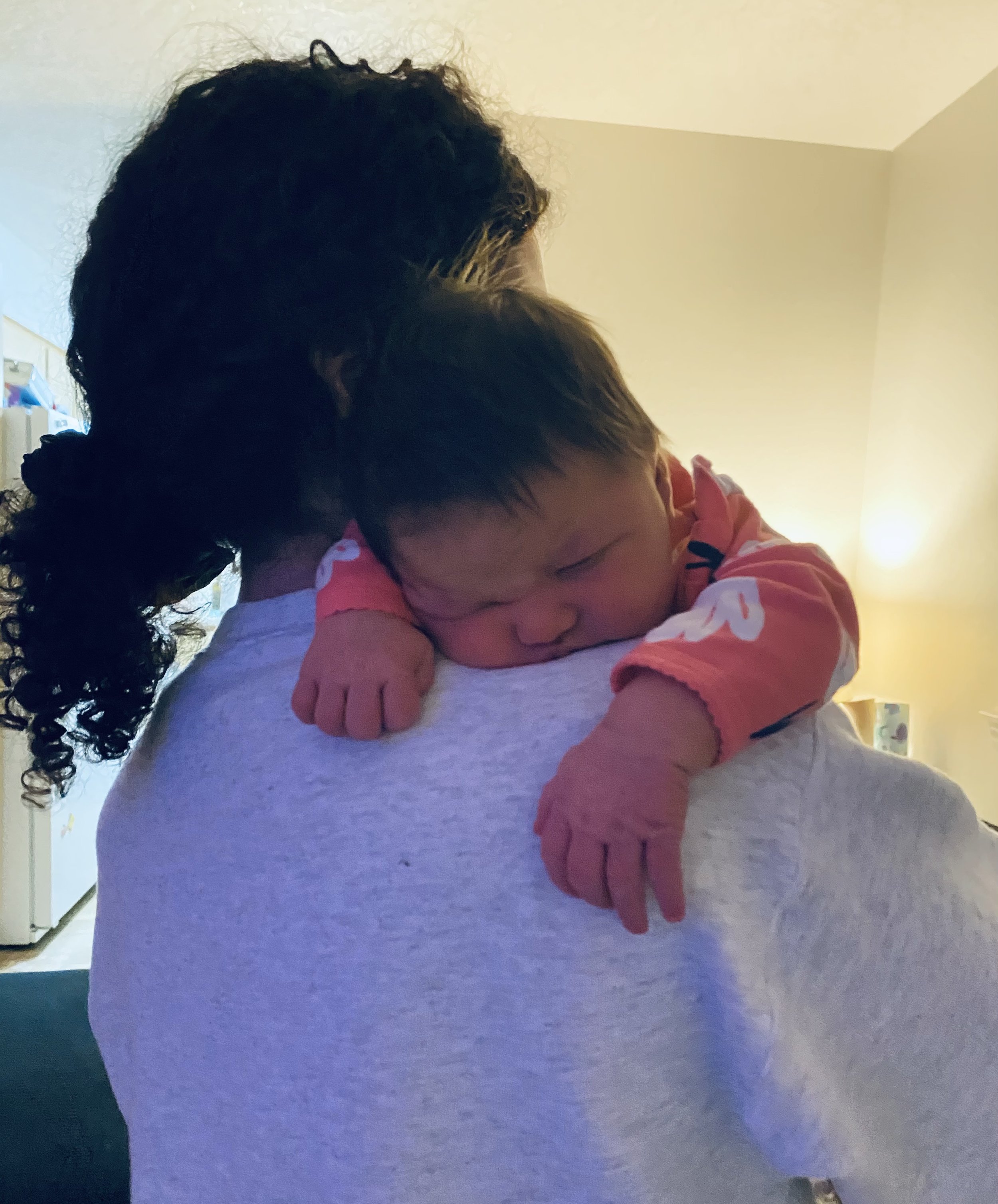What is a doula?
A doula provides guidance to a family during the transformative experience of birth. Doulas support parents in their decision making process by offering evidence based information while also encouraging parents to follow their inner knowledge.
Birth Support
Birth is a revolution of the heart. As a doula, my role as a birth support team member is to safely guide you and your baby through the threshold of your unique birth journey back to your heart’s center; discovering along the way, a transformed, evolved, and powerful version of yourself. My doula services are here to support you through your pregnancy and postnatal time period.
Everyone who wants a doula should have access to a doula. With this in mind my birth support packages are financially flexible.
-

Prenatal Support
Unlimited Phone/Text/Email
On-call 24/7 from 38 weeks until delivery
1-2 group meet & greets per month
20 min Onboarding meeting
2 hours of virtual prenatal preparation (physiology, coping, lactation, and postpartum)
-
Birth Support
Continuous support throughout labor and birth:
Flow into specific movements to encourage labor progression
Create a safe space for you to explore and journey through your birth
Protect your mental stamina and provide grounding, motiving encouragement
Step in to assist your partner when they need a rest or moment
-
Postpartum Support
Up to 2 hours of immediate postpartum support after the birth
One 3hr postpartum visit in your home
Emotional space to tell your birth story
Special focus on breast/chestfeeding
Nourishing foods prepared for you in the comfort of your home
Resource list with evidence based information
*option to add more postpartum help at any point during the first 6 weeks
FAQs
-
“Doulas are trained to provide non-clinical emotional, physical and informational support for people before, during, and after labor and birth. Birth doulas provide hands-on comfort measures and share resources and information about labor and birth. Doulas can facilitate positive communication between the birthing person and their care providers by helping people articulate their questions, preferences and values.
In addition to providing continuous support during labor and childbirth, birth doulas typically meet with clients one or more times at the end of pregnancy, as well as early in the postpartum period, although some hospital-based doula programs provide care only during labor and birth. In the postpartum period, doulas may offer help with newborn feeding and other care, emotional and physical recovery from birth, coping skills, and appropriate referrals as necessary.”
Advancing Birth Justice: Community-Based Doula Models as a Standard of Care for Ending Racial Disparities, Ancient Song Doula Services, Village Birth International, and Every Mother Counts, 2019
-
A systematic review* of continuous labor support summarizes the experiences of over 15,000 people who participated in 21 randomized controlled trials. The authors conclude:
"Continuous support during labour has clinically meaningful benefits for women and infants and no known harm. All women should have support throughout labour and birth” (Hodnett et al 2011).
The review concluded that in comparison with individuals who had continuous support, people who labored without continuous support had longer labors and were less likely to have a “spontaneous” birth (meaning birth without cesarean, vacuum extraction, or forceps).
People without support were more likely to:
have an epidural or other “regional” analgesia to manage pain.
use any type of pain medication (including narcotics).
give birth by cesarean section
give birth with vacuum extraction or forceps.
give birth to a baby with a low Apgar score rating of well-being 5 minutes after birth.
be dissatisfied with or negatively rate their childbirth experience.
* “A review earns the adjective systematic if it is based on a clearly formulated question, identifies relevant studies, appraises their quality and summarizes the evidence by use of explicit methodology.” National Library of Medicine
-
In Hodnett’s review of 15,000 women her findings revealed that positive birthing outcomes increased when the support was not from the laboring mother’s inner circle or from the hospital staff.
Companions who were neither on the hospital staff nor in the person’s social network were:
28% less likely to have a cesarean section.
31% less likely to use synthetic oxytocin to speed up labor.
9% less likely to use any pain medication.
34% less likely to rate their childbirth experience negatively.
Support from the women’s inner circle increased satisfaction, but did not seem to impact use of obstetric interventions.
Support provided by a member of the hospital staff (such as a nurse) did not seem to impact a person’s likelihood of having a cesarean or their satisfaction. The authors note that hospital employees may have divided loyalties and other duties, and may be influenced by hospital policies, which could limit the impact of their supportive care.










